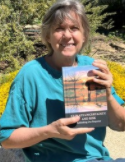|
DECEMBER 10, 2023
|
|
|
|
|
FULL TWO HOURS
 HOUR 1
HOUR 1  HOUR 2
HOUR 2
 |
|
|
|
Hour 1: Bipartisan Reform Can Prevent Health
Care Monopolization" with Dr. Richard Kube MD,
Founder/CEO Prairie Spine and Pain Institute |


Richard A. Kube II, MD, FACSS, FAAOS
Dr. Kube is the CEO and
Founder of Prairie Spine & Pain Institute. He
has served several years on the Coding and
Reimbursement Task Force for the International
Society for the Advancement of Spine Surgery.
Dr. Richard Kube is an internationally renowned,
fellowship-trained spine surgeon known for his
advanced spine techniques. He is an expert in
advanced spine treatments, including minimally
invasive procedures and motion preservation
techniques. Also called upon for teaching and
speaking engagements, Dr. Kube seeks out new
research and education to provide patients with
cutting edge treatments, operative and
non-operative. He has delivered more than 100
international presentations, including Asia,
Europe and North America on his motion
preservation techniques.
First surgeon to perform the following
procedures:
Worldwide
United States
Illinois
Central Illinois
-
Dynesys® LIS Dynamic
Stabilization System
-
Minimally invasive
lumbar fusion – Outpatient
-
Spectra WaveWriter SCS
Long Lasting Pain Relief System
-
Spinal Cord Stimulator
(SCS) device – surgical implant
Peoria, Illinois
|
|
|
|
https://www.newsweek.com/bipartisan-reform-can-prevent-health-care-monopolization-opinion-1826459
|
|
Bipartisan Reform Can Prevent Health Care
Monopolization |Opinion |
|
Richard A. Kube , CEO and
Founder, Prairie Spine & Pain Institute |
|
|
|
On 9/14/23 at 11:00 AM EDT |
|
|
Rising health care costs
are a major concern for most Americans. A Pew
poll from earlier this year
found 64 percent of Americans consider
health care affordability a "very big problem in
our country today." That includes majorities of
both parties—54 percent of
Republicans and 73 percent of
Democrats. Our country may struggle with
division and polarization, but it's clear that
health care is an area where bipartisan reform
is possible.
One of the key drivers for rising prices is
consolidation in the health care market—when a
smaller number of providers control a greater
share of the overall market. Consolidation leads
to less competition and therefore higher prices
for consumers.
In recent years, health care markets big and
small have become more consolidated. Researchers
at the
University of California, Berkeley
found that from 2010 to 2016 the number of
metro areas in the United States with high
concentration of primary care providers
increased by 85 percent. They also found 65
percent of metro areas were highly concentrated
for specialist providers. All the while, the
American Medical Association
reports record-low numbers of physicians in
private practice.
The rise of consolidation and decline of small
private practices did not happen by chance. It
was the unintended consequence of government
policies, such as Medicare's reimbursement rate,
which pays large hospitals and hospital systems
more than small doctor offices for the same
care. This payment differential benefits large
hospital systems, which buy up small doctor
practices and charge consumers higher prices by
simply affixing the company name to an existing
facility's front door.
A
report from the American Enterprise
Institute found that "for a 30-minute office
visit, the physician fee schedule payment rate
for calendar year 2017 was $109.46 for a new
patient, while if delivered in a hospital
setting, the total would be 68.5 percent higher
or $184.44." This massive difference in
reimbursement for the same service not only
distorts the market, but, according to the
researchers, it is "harmful to patients, who
experience higher [Medicare] Part B coinsurance
amounts due to bigger bills for the same
clinical service."
Consolidation practices increase prices on
non-Medicare patients too. The UC Berkeley
study found "price increases often exceeding
20 percent" after mergers. A 2023
Harvard/National Bureau of Economic Research
study
found that "prices paid to health system
physicians and hospitals were significantly
higher than prices paid to nonsystem
physicians." When operating under a hospital
logo, physician revenue went up by 26 percent
despite providing the same services. To cover
that increase in costs, the average American
will have to foot the bill through higher
co-pays and out-of-pocket expenses, higher
insurance premiums, or both.
All of this can be resolved by ending two-tier
Medicare reimbursement policies. Instead, the
program should implement site-neutral
reimbursement payments based on the care
provided, not facility location or ownership.
Site-neutral payment would put an end to the
unfair policies that promote consolidation and
encourage higher prices. Proposals to do so in
Congress have support among Republicans and
Democrats. Several congressional committees are
now debating a health reform package that
includes provisions to establish site neutrality
in limited circumstances. That would be a vital
first step, one which physicians across the
country hope will soon expand to other services.
After all, what could be more fair than
reimbursing providers the same amount for the
same service?
In light of the fiscal challenges facing
Medicare, including
insolvency of its Hospital Insurance Trust
Fund, it makes sense to cut program costs and
save taxpayers money. The horrors of
consolidation over the past decade give even
greater urgency to swift action. Health care
reform is necessary and, fortunately, reforms
like site-neutrality can be simple and
bipartisan.
Richard A. Kube II, MD, FACSS, FAAOS is CEO and
Founder of Prairie Spine & Pain Institute. He
has served several years on the Coding and
Reimbursement Task Force for the International
Society for the Advancement of Spine Surgery. |
|
|
|
|
|
Hour 2: "Current Weather/Climate and COP 28"
with Dr. Judith Curry
 |
About
our Guest Dr. Judith Curry
 Dr.
Judith Curry is President and co-founder of
Climate Forecast Applications Network (CFAN).
She is Professor Emerita at the Georgia
Institute of Technology, where she served as
Chair of Earth and Atmospheric Sciences for
13 years. Her expertise is in climate
dynamics, extreme weather, and
prediction/predictability. Curry is a Fellow
of the American Meteorological Society, the
American Association for the Advancement of
Science, and the American Geophysical Union. Dr.
Judith Curry is President and co-founder of
Climate Forecast Applications Network (CFAN).
She is Professor Emerita at the Georgia
Institute of Technology, where she served as
Chair of Earth and Atmospheric Sciences for
13 years. Her expertise is in climate
dynamics, extreme weather, and
prediction/predictability. Curry is a Fellow
of the American Meteorological Society, the
American Association for the Advancement of
Science, and the American Geophysical Union.
Following an influential career in academic
research and administration, Curry founded
CFAN to translate cutting-edge weather and
climate research into forecast products and
services that support the management of
weather and climate risk for public and
private sector decision makers. Curry is a
leading global thinker on climate change.
She is frequently called upon to give U.S.
Congressional testimony and serve as an
expert witness on matters related to weather
and climate. Her influential blog Climate
Etc. addresses leading-edge and
controversial topics about climate change
and the science-policy interface. Her new
book Climate Uncertainty and Risk -
Rethinking the climate change problem, the
risks we are facing, and how we can respond. |
 |
Twitter:
@curryja
Blog: Climate Etc.
judithcurry.com
Climate Forecast Applications Network (CFAN):
www.cfanclimate.net
Book:
Climate Uncertainty and Risk
 World
leaders have made a forceful statement that
climate change is the greatest challenge
facing humanity in the 21st century.
However, little progress has been made in
implementing policies to address climate
change. In Climate Uncertainty and Risk,
eminent climate scientist Judith Curry shows
how we can break this gridlock. This book
helps us rethink the climate change problem,
the risks we are facing and how we can
respond to these challenges. Understanding
the deep uncertainty surrounding the climate
change problem helps us to better assess the
risks. This book shows how uncertainty and
disagreement can be part of the
decision-making process. It provides a road
map for formulating pragmatic solutions.
Climate Uncertainty and Risk is essential
reading for those concerned about the
environment, professionals dealing with
climate change and our national leaders. World
leaders have made a forceful statement that
climate change is the greatest challenge
facing humanity in the 21st century.
However, little progress has been made in
implementing policies to address climate
change. In Climate Uncertainty and Risk,
eminent climate scientist Judith Curry shows
how we can break this gridlock. This book
helps us rethink the climate change problem,
the risks we are facing and how we can
respond to these challenges. Understanding
the deep uncertainty surrounding the climate
change problem helps us to better assess the
risks. This book shows how uncertainty and
disagreement can be part of the
decision-making process. It provides a road
map for formulating pragmatic solutions.
Climate Uncertainty and Risk is essential
reading for those concerned about the
environment, professionals dealing with
climate change and our national leaders.
|
Discussed
Today:
Ryan Maue
@RyanMaue
Weather and Climate | PhD | Look Up | 25+
Years of Research | Maps | Weather & Climate
Analysis | Forecast Company |
weather.substack.com |
|
|
|